Business
Taxpayers release Naughty and Nice List

From the Canadian Taxpayers Federation
Author: Franco Terrazzano
CBC President and CEO Catherine Tait tops the Taxpayer Naughty List for announcing hundreds of layoffs weeks before Christmas without cancelling bonuses for executives.
“It takes a special type of Scrooge to lay off hundreds of employees weeks before the holidays and not be willing to give up your own bonus, but that’s exactly what taxpayers heard from CBC big shots,” said Franco Terrazzano, CTF Federal Director. “Meanwhile, Senator Pierre Dalphond delayed and watered-down carbon tax relief for farmers and now Santa’s furious because the bills for his candy cane farm and reindeer barn are through the chimney.”
Prime Minister Justin Trudeau made the Taxpayer Naughty List for removing the carbon tax from furnace oil for three years while leaving 97 per cent of Canadian families out in the cold. Nova Scotia Premier Tim Houston also found himself in Santa’s bad books for taking more money from taxpayers through the sneaky income tax hike known as bracket creep.
Manitoba Premier Wab Kinew made the Taxpayer Nice List for providing taxpayers with Santa-sized fuel and income tax relief. The Parliamentary Budget Officer also made Santa’s good books for improving accountability and transparency in Ottawa.
“‘Tis the season for giving, but Calgary Mayor Jyoti Gondek and Edmonton Mayor Amarjeet Sohi shouldn’t be giving their residents steep tax hikes while they give themselves a raise,” said Kris Sims, Alberta Director of the CTF. “The entire Alberta village of Ryley made Santa’s good books for using recall legislation to boot a big-spending politician.”
The 2023 Taxpayer Naughty and Nice List
The Naughty List (So…. long!)
CBC President & CEO Catherine Tait – For clinging to executive bonuses
It takes a special type of Scrooge to announce hundreds of layoffs weeks before Christmas. Even worse, Tait isn’t willing to end the tens-of-millions of dollars in bonuses the CBC doled out in recent years. ‘Tis the season for giving… but giving out bonuses while firing hundreds of staffers is a sure-fire way to land yourself on Santa’s Naughty List!
Prime Minister Justin Trudeau – For leaving 97 per cent of Canadians out in the cold
All Canadians need a warm home to celebrate during the holiday season. But Trudeau thinks only three per cent of Canadians need carbon tax relief this winter. Trudeau is removing the carbon tax from furnace oil while keeping the tax on for 97 per cent of Canadian families. Santa is stuffing the prime minister’s stocking with lumps of coal this year and Trudeau will be sure to carbon tax those lumps, too.
Senator Pierre Dalphond – For making Santa’s milk and cookies more expensive
The holiday season is a time to enjoy festive feasts with loved ones. But Senator Pierre Dalphond is making the holiday season more expensive by delaying and watering down a bill that would take the carbon tax off all farm fuels. Canadians worry they may have to cut back on the milk and cookies they leave out on Christmas eve. Unfortunately for Senator Dalphond, Santa is not a happy camper, because the bills for his candy cane farm and reindeer barn are going through the chimney.
Mayor of Quebec City Bruno Marchand and Vancouver Mayor Ken Sim – For hiking taxes on pets
It’s one thing to tax the air we breathe, the money we earn or the presents we buy. But taxing our pets … have you no heart, Mr. Grinch? Mayors Marchand and Sim are hiking the taxes families pay to own pets in Quebec City and Vancouver. Rumour has it Santa is launching a campaign to take the tax off his reindeer.
Federal Minister of Industry François-Philippe Champagne – For giving billions of dollars to multinational corporations
There’s only one place you’ll find yourself if you pull a reverse Robin Hood … Santa’s Naughty List! Champagne has been busy taking money from struggling taxpayers and giving billions of dollars to multinational corporations to build electric car battery plants. Champagne should take notes from
Santa and his little helpers. They’ve been building batteries and remote-control hot rods for decades, at no cost to taxpayers!
Mayor of Calgary Jyoti Gondek and Edmonton Mayor Amarjeet Sohi – For hiking taxes and their own pay
‘Tis the season for giving … and mayors Gondek and Sohi sure do love giving. They’re giving their residents steep property tax hikes. And they’re giving themselves pay raises. Calgary City Council and Edmonton city council both took a raise this year. More lumps of coal: both Gondek and Sohi take bigger salaries than the premier of Alberta.
Nova Scotia Premier Tim Houston – For his bracket creep income tax hike
Nothing makes Santa more upset than bracket creep. It’s a sneaky backdoor tax grab that allows politicians to use inflation to raise income taxes. Nova Scotia Premier Tim Houston is using bracket creep to gouge taxpayers. And for that, Houston finds himself on Santa’s Naughty List this year.
University of Manitoba’s former law dean Jonathan Black-Branch – For racking up half-a-million in expenses
Black-Branch’s term was cut short after an internal investigation found he expensed upwards of $500,000 in public funds, including for personal dinners and drinks. Now that’s a lot of cookies and eggnog! There’s only one way for Black-Branch to get off the Naughty List: pay the money back.
The Nice List (So… short!)
Manitoba Premier Wab Kinew – For the gift of tax relief
Kinew is giving Manitobans Santa-sized fuel and income tax relief in the New Year. He committed
to suspending the province’s fuel tax and providing significant income tax relief. And kudos to the previous Manitoba government who didn’t forget about the Tiny Tims. Thanks to the last budget, taxpayers earning less than $15,000 won’t pay any provincial income taxes.
Liberal MP Ken McDonald – For getting his constituents carbon tax relief
It takes a lot of courage to stand up for your convictions and constituents, and vote against your party leader. McDonald did just that when he voted to “repeal all carbon taxes.” Because of his advocacy, the feds took the carbon tax off furnace oil for three years. Santa just wishes Liberal MPs in other parts of Canada had McDonald’s courage and were willing to stick up for their constituents too.
Parliamentary Budget Officer Yves Giroux – For the gift of government accountability and transparency
Taxpayers always deserve the gift of transparency and accountability in Ottawa. And the PBO delivered it in droves in 2023. From showing the full cost of Trudeau’s two carbon taxes, to fact-checking Ottawa’s deficit numbers and analyzing tax plans, the PBO has been holding politicians accountable all year.
Alberta’s Village of Ryley – For recalling a big-spending mayor
Ryley is the first municipality in Canada to recall a city hall politician, former mayor Nik Lee. During Lee’s tenure, the village’s spending almost doubled from $1.7 million to $3 million in 2022. Lee also spent more than $5,000 on meetings without approval. When Lee refused to resign from council, residents of Ryley took matters into their own hands, launched a recall campaign and booted Lee. For their civic engagement and holding a big-spending politician accountable, all residents of Ryley land themselves on Santa’s Nice List this year!
Agriculture
Liberal win puts Canada’s farmers and food supply at risk
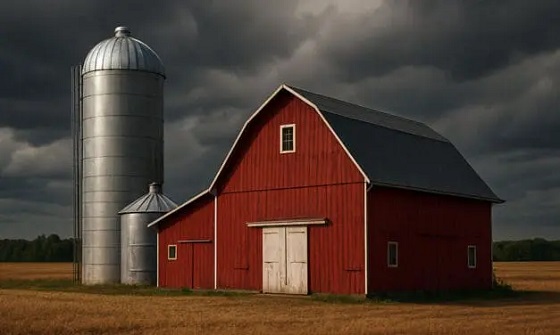
This article supplied by Troy Media.
A fourth Liberal term means higher carbon taxes and trade risks. Could Canada’s farmers and food security be on the line?
The Liberal Party, now led by Mark Carney, has secured a fourth consecutive term, albeit once again with a minority mandate. This time, however, the Liberals have a stronger hand, as they can rely not only on the NDP but also the Bloc Québécois to maintain power.
This broader base of parliamentary support could provide much-needed political stability at a crucial time, particularly as Canada prepares for a new round of trade negotiations with the United States and Mexico.
For the agri-food sector, the implications are significant. From carbon taxes to trade rules, federal decisions play a decisive role in shaping the costs and risks Canadian farmers face.
First and foremost, carbon pricing will remain a central issue. Carney has made it clear that the industrial carbon tax will stay—a policy that continues to erode the competitiveness of Canada’s agri-food sector, where fuel, fertilizer and transportation costs are especially sensitive to carbon pricing. The tax, currently set at $95 per metric tonne, is scheduled to climb to $170 by 2030.
While consumers may not see this tax directly, businesses certainly do. More concerning is the Liberals’ intention to introduce a border carbon adjustment for imports from countries without equivalent carbon pricing regimes. While this could theoretically protect Canadian industry, it also risks making food even more expensive for Canadian consumers, particularly if the U.S., our largest trading partner, remains uninterested in adopting similar carbon measures. Acting alone risks undermining both our food security and our global competitiveness.
Another looming issue is supply management. Although all parties pledged during the campaign not to alter Canada’s system for dairy, poultry and eggs, this framework—built on quotas and high import tariffs—is increasingly outdated. It is almost certain to come under pressure during trade negotiations. The American dairy lobby, in particular, will continue to demand greater access to Canadian markets. The Liberals have a chance to chart a more forward-looking path. Modernizing supply management could lead to a more competitive, resilient industry while providing consumers with greater choice and better prices.
The previous Parliament’s passage of Bill C-282, which sought to shield supply managed sectors from all future trade negotiations, was a deeply flawed move.
Fortunately, the new parliamentary makeup should make it far less likely that such protectionist legislation will survive. A more pragmatic approach to trade policy appears possible.
On the domestic front, there are reasons for cautious optimism. The Liberals have promised to eliminate remaining federal barriers to interprovincial trade and to improve labour mobility, longstanding obstacles to the efficient movement of agri-food products across Canada. For example, differing provincial rules often prevent products like cheese, meat or wine from being sold freely across provinces, frustrating farmers and limiting consumer choice. Momentum was building before the election, and it must continue if we are serious about building a stronger domestic food economy.
Infrastructure investment is another bright spot. The Liberals pledged more than $5 billion through a Trade Diversification Corridor Fund to upgrade Canada’s severely undercapitalized export infrastructure. Strategic investment in trade gateways is overdue and critical for agri-food exporters looking to reduce reliance on the United States and expand into global markets.
Finally, the Liberal platform was alone in explicitly committing to support food processing in Canada, a crucial pillar of domestic food security. An increased focus on manufacturing will not only create jobs but also reduce reliance on imported food products, making Canada more resilient in the face of global disruptions.
Farmers have long felt sidelined by urban-centric Liberal governments. The past four years were marked by regulatory and trade clashes that deepened that divide. The hope now is that with greater political stability and a clearer focus on competitiveness, the next four years will bring a more constructive relationship between Ottawa and Canada’s agri-food sector.
If the Liberals are serious about food security and economic growth, now is the time to reset the relationship with Canada’s farmers, not ignore them yet again.
Dr. Sylvain Charlebois is a Canadian professor and researcher in food distribution and policy. He is senior director of the Agri-Food Analytics Lab at Dalhousie University and co-host of The Food Professor Podcast. He is frequently cited in the media for his insights on food prices, agricultural trends, and the global food supply chain.
Troy Media empowers Canadian community news outlets by providing independent, insightful analysis and commentary. Our mission is to support local media in helping Canadians stay informed and engaged by delivering reliable content that strengthens community connections and deepens understanding across the country.
Business
Trump’s bizarre 51st state comments and implied support for Carney were simply a ploy to blow up trilateral trade pact
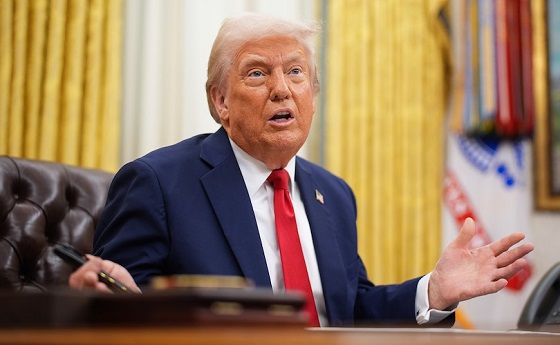
From LifeSiteNews
Trump’s position on the Canadian election outcome had nothing to do with geopolitical friendships and everything to do with America First economics.
Note from LifeSiteNews co-founder Steve Jalsevac: This article, disturbing as it is, appears to explain Trump’s bizarre threats to Canada and irrational support for Carney. We present it as a possible explanation for why Trump’s interference in the Canadian election seems to have played a large role in the Liberals’ exploitation of the Trump threat and their ultimate, unexpected success.
To understand President Trump’s position on Canada, you have to go back to the 2016 election and President Trump’s position on the North American Free Trade Agreement (NAFTA) renegotiation. If you did not follow the subsequent USMCA process, this might be the ah-ha moment you need to understand Trump’s strategy.
During the 2016 election President Trump repeatedly said he wanted to renegotiate NAFTA. Both Canada and Mexico were reluctant to open the trade agreement to revision, but ultimately President Trump had the authority and support from an election victory to do exactly that.
In order to understand the issue, you must remember President Trump, Commerce Secretary Wilbur Ross, and U.S. Trade Representative Robert Lighthizer each agreed that NAFTA was fraught with problems and was best addressed by scrapping it and creating two separate bilateral trade agreements. One between the U.S. and Mexico, and one between the U.S. and Canada.
In the decades that preceded the 2017 push to redo the trade pact, Canada had restructured their economy to: (1) align with progressive climate change; and (2) take advantage of the NAFTA loophole. The Canadian government did not want to reengage in a new trade agreement.
Canada has deindustrialized much of their manufacturing base to support the “environmental” aspirations of their progressive politicians. Instead, Canada became an importer of component goods where companies then assembled those imports into finished products to enter the U.S. market without tariffs. Working with Chinese manufacturing companies, Canada exploited the NAFTA loophole.
Justin Trudeau was strongly against renegotiating NAFTA, and stated he and Chrystia Freeland would not support reopening the trade agreement. President Trump didn’t care about the position of Canada and was going forward. Trudeau said he would not support it. Trump focused on the first bilateral trade agreement with Mexico.
When the U.S. and Mexico had agreed to terms of the new trade deal and 80 percent of the agreement was finished, representatives from the U.S. Chamber of Commerce informed Trudeau that his position was weak and if the U.S. and Mexico inked their deal, Canada would be shut out.
The U.S. Chamber of Commerce was upset because they were kept out of all the details of the agreement between the U.S. and Mexico. In actuality, the U.S. CoC was effectively blocked from any participation.
When they went to talk to the Canadians the CoC was warning them about what was likely to happen. NAFTA would end, the U.S. and Mexico would have a bilateral free trade agreement (FTA), and then Trump was likely to turn to Trudeau and say NAFTA is dead, now we need to negotiate a separate deal for U.S.-Canada.
Trudeau was told a direct bilateral trade agreement between the U.S. and Canada was the worst possible scenario for the Canadian government. Canada would lose access to the NAFTA loophole and Canada’s entire economy was no longer in a position to negotiate against the size of the U.S. Trump would win every demand.
Following the warning, Trudeau went to visit Nancy Pelosi to find out if Congress was likely to ratify a new bilateral trade agreement between the U.S. and Mexico. Pelosi warned Trudeau there was enough political support for the NAFTA elimination from both parties. Yes, the bilateral trade agreement was likely to find support.
Realizing what was about to happen, Prime Minister Trudeau and Chrystia Freeland quickly changed approach and began to request discussions and meetings with USTR Robert Lighthizer. Keep in mind more than 80 to 90 percent of the agreement was already done by the U.S. and Mexico teams. Both President Andres Manuel Lopez Obrador and President Trump were now openly talking about when it would be finalized and signed.
Nancy Pelosi stepped in to help Canada get back into the agreement by leveraging her Democrats. Trump agreed to let Canada engage, and Lighthizer agreed to hold discussions with Chrystia Freeland on a tri-lateral trade agreement that ultimately became the USMCA.
The key points to remember are: (1) Trump, Ross, and Lighthizer would prefer two separate bilateral trade agreements because the U.S. import/export dynamic was entirely different between Mexico and Canada. And because of the loophole issue, (2) a five-year review was put into the finished USMCA trade agreement. The USMCA was signed on November 30, 2018, and came into effect on July 1, 2020.
TIMELINE: The USMCA is now up for review (2025) and renegotiation in 2026!
This timeline is the key to understanding where President Donald Trump stands today. The review and renegotiation is his goal.
President Trump said openly he was going to renegotiate the USMCA, leveraging border security (Mexico) and reciprocity (Canada) within it.
Following the 2024 presidential election, Prime Minister Justin Trudeau traveled to Mar-a-Lago and said if President Trump was to make the Canadian government face reciprocal tariffs, open the USMCA trade agreements to force reciprocity, and/or balance economic relations on non-tariff issues, then Canada would collapse upon itself economically and cease to exist.
In essence, Canada cannot survive as a free and independent north American nation, without receiving all the one-way benefits from the U.S. economy.
To wit, President Trump then said that if Canada cannot survive in a balanced rules environment, including putting together their own military and defenses (which it cannot), then Canada should become the 51st U.S. state. It was following this meeting that President Trump started emphasizing this point and shocking everyone in the process.
However, what everyone missed was the strategy Trump began outlining when contrast against the USMCA review and renegotiation window.
Again, Trump doesn’t like the tri-lateral trade agreement. President Trump would rather have two separate bilateral agreements; one for Mexico and one for Canada. Multilateral trade agreements are difficult to manage and police.
How was President Trump going to get Canada to (a) willingly exit the USMCA; and (b) enter a bilateral trade agreement?
The answer was through trade and tariff provocations, while simultaneously hitting Canada with the shock and awe aspect of the 51st state.
The Canadian government and the Canadian people fell for it hook, line, and sinker.
Trump’s position on the Canadian election outcome had nothing to do with geopolitical friendships and everything to do with America First economics. When asked about the election in Canada, President Trump said, “I don’t care. I think it’s easier to deal, actually, with a liberal and maybe they’re going to win, but I don’t really care.”
By voting emotionally, the Canadian electorate have fallen into President Trump’s USMCA exit trap. Prime Minister Mark Carney will make the exit much easier. Carney now becomes the target of increased punitive coercion until such a time as the USMCA review is begun, and Canada is forced to a position of renegotiation.
Trump never wanted Canada as a 51st state.
Trump always wanted a U.S.-Canada bilateral trade agreement.
Mark Carney said the era of U.S.-Canadian economic ties “are officially declared severed.”
Canada has willingly exited the USMCA trade agreement at the perfect time for President Trump.
-

 Alberta2 days ago
Alberta2 days agoNew Alberta Election Act bans electronic vote counting machines, lowers threshold for recalls and petitions
-

 Alberta2 days ago
Alberta2 days agoHours after Liberal election win, Alberta Prosperity Project drumming up interest in referendum
-
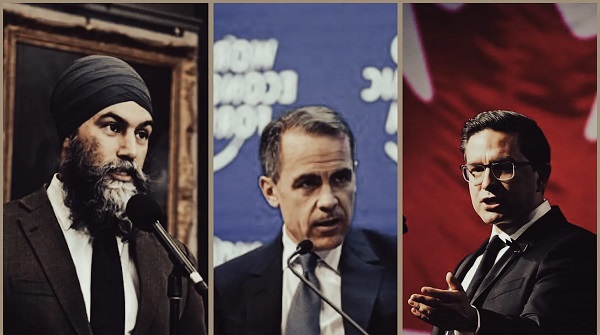
 2025 Federal Election1 day ago
2025 Federal Election1 day agoNDP Floor Crossers May Give Carney A Majority
-
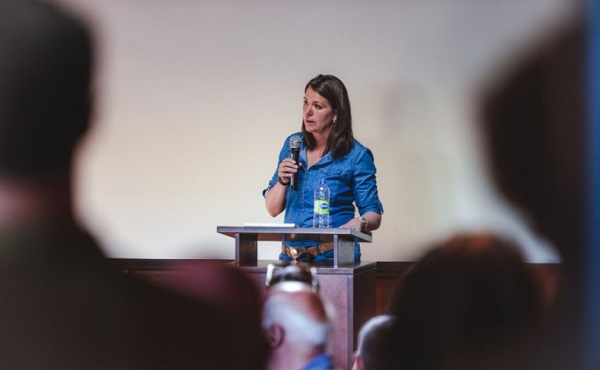
 Alberta2 days ago
Alberta2 days agoPremier Danielle Smith hints Alberta may begin ‘path’ toward greater autonomy after Mark Carney’s win
-
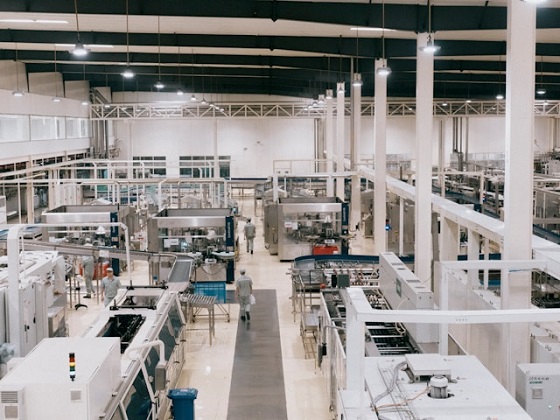
 Business19 hours ago
Business19 hours agoChina’s economy takes a hit as factories experience sharp decline in orders following Trump tariffs
-

 Banks2 days ago
Banks2 days agoTD Bank Account Closures Expose Chinese Hybrid Warfare Threat
-
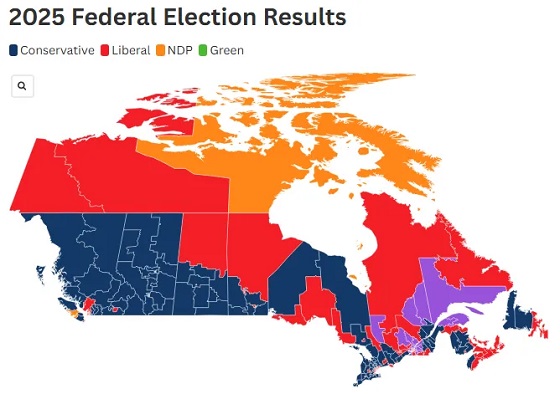
 2025 Federal Election2 days ago
2025 Federal Election2 days agoPost election…the chips fell where they fell
-
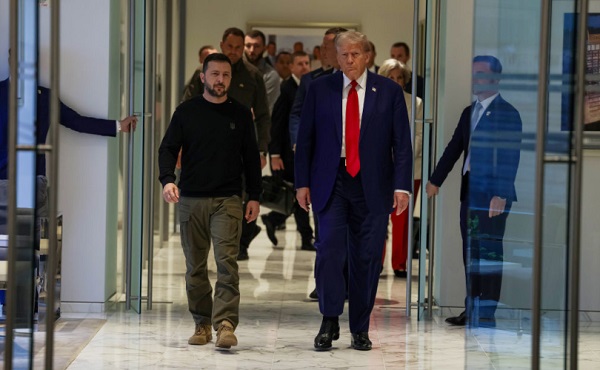
 Business21 hours ago
Business21 hours agoScott Bessent says U.S., Ukraine “ready to sign” rare earths deal

